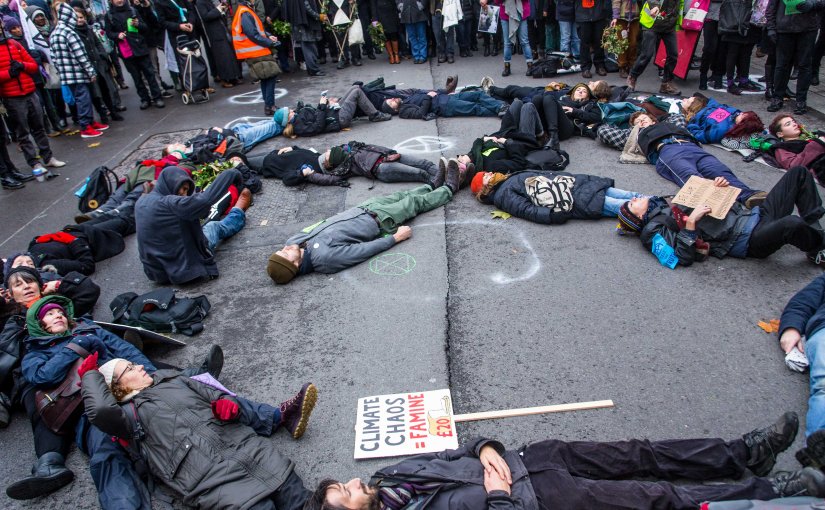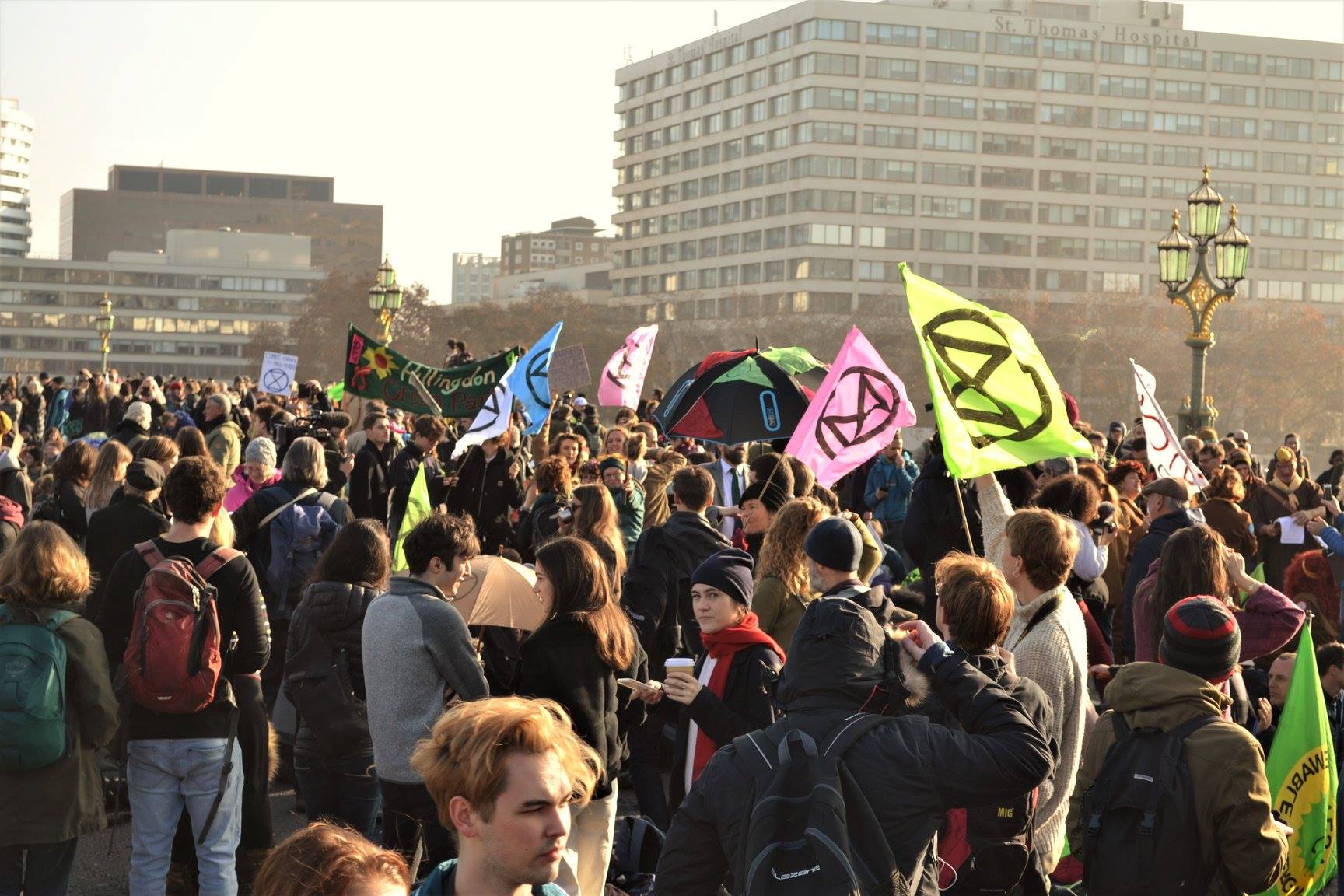100 notable figures from around the globe have come together to sign an open letter which calls upon concerned citizens of the globe to rise up and radically organise against current governmental complacency on the ecological and climate emergency we are facing.
The 100 includes Vandana Shiva, Noam Chomsky, Naomi Klein, Chris Packham, Lily Cole, Bill McKibben, Dr Rowan Williams, and Bill Ripple of Scientists Warning amongst others.
The open letter, penned and organised by Dr Alison Green, Dr Richard House, and Dr Rupert Read, who are all representatives of climate advocacy and action group Extinction Rebellion, has been published today simultaneously round the globe, in media including The Guardian (UK), South China Morning Post (Hong Kong), Taipei Times (Taiwan), O Pais (Mozambique), Aftenposten (Norway) and Al Wihda (Chad).
The publication of the letter comes at the same time as the COP24 United Nations climate summit in Katowice, Poland, which is the first to be held since the IPCC report on climate breakdown and the proposed global temperature limitation of 1.5C was published in October.
At COP24, renowned environmentalist Sir David Attenborough declared in his speech, “Right now, we’re facing a man-made disaster of global scale. Our greatest threat in thousands of years: Climate Change. If we don’t take action, the collapse of our civilisations, and the extinction of much of the natural world is on the horizon.”
“The world’s people have spoken. Their message is clear. Time is running out.”
As an organisation, Extinction Rebellion ‘rejects the complacency and denial exhibited by business and political leaders, and insists that the truth about the climate crisis is told.’ It uses non-violent direct action and civil disobedience to bring attention to the apparent ‘criminal activity’ of governments.
The group’s demands are as follows:
- The Government must admit the truth about the ecological emergency, reverse all policies inconsistent with addressing climate change, and work alongside the media to communicate with citizens
- The Government must enact legally binding policy measures to reduce carbon emissions to net zero by 2025 and to reduce consumption levels
- A national Citizen’s Assembly must be created, to oversee the changes, as part of creating a democracy fit for purpose.
“We feel we have really struck a chord with this letter. People understand that there is nothing wrong with telling the truth,” commented Dr Alison Green, PVC Academic at Arden University.
“It has been heartening to have the support of so many high-profile people, and amazing that some of the biggest names were also the quickest to respond. Even people who felt unable to sign the letter commented that they supported the action.”
Fellow letter organiser and chartered psychologist Dr Richard House added, “I co-organised the famous press letter on ‘toxic childhood’ that went viral overnight in September 2006, and tellingly, the level of concern shared by our signatories to this letter surpasses even that. The ignoring or sidelining of this issue by corporations and governments is simply no longer an option.”
Read the full letter below.
Climate Emergency: An Open Letter to Concerned Global Citizens
This open letter appears today in major newspapers across the world.
In our complex, interdependent global ecosystem, life is dying, with species extinction accelerating. The climate crisis is worsening much faster than previously predicted. Every single day 200 species are becoming extinct. This desperate situation can’t continue.
Political leaders worldwide are failing to address the environmental crisis. If global corporate capitalism continues to drive the international economy, global catastrophe is inevitable.
Complacency and inaction in Britain, the USA, Australia, Brazil, across Africa and Asia… – all illustrate diverse manifestations of political paralysis, abdicating humankind’s grave responsibility for planetary stewardship.
International political organizations and national governments must foreground the climate-emergency issue immediately, urgently drawing up comprehensive policies to address it. Conventionally privileged nations must voluntarily fund comprehensive environment-protection policies in impoverished nations, to compensate the latter for foregoing unsustainable economic growth, and paying recompense for the planet-plundering imperialism of materially privileged nations.
With extreme weather already hitting food production, we demand that governments act now to avoid any risk of hunger, with emergency investment in agro-ecological extreme-weather-resistant food production. We also call for an urgent summit on saving the Arctic icecap, to slow weather disruption of our harvests.
We further call on concerned global citizens to rise up and organise against current complacency in their particular contexts, including indigenous people’s rights advocacy, decolonization and reparatory justice – so joining the global movement that’s now rebelling against extinction (e.g. “Extinction Rebellion” in the UK).
We must collectively do whatever’s necessary non-violently, to persuade politicians and business leaders to relinquish their complacency and denial. Their “business as usual” is no longer an option. Global citizens will no longer put up with this failure of our planetary duty.
Every one of us, especially in the materially privileged world, must commit to accepting the need to live more lightly, consume far less, and to not only uphold human rights but also our stewardship responsibilities to the planet.
You can see a full list of signatories here.









